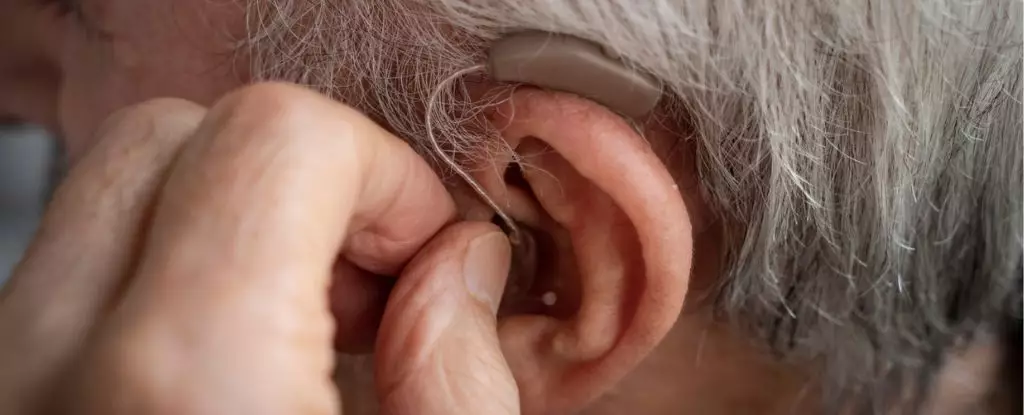Parkinson’s disease, a progressive neurological disorder, is characterized by a range of debilitating symptoms, including tremors and impaired movement. Recent research indicates that addressing another issue—the impairment of hearing—may play a significant role in delaying the diagnosis of this condition. A study observing over 3.5 million veterans in the United States brings to light the compelling prospect that timely intervention with hearing aids could potentially decrease the incidence of Parkinson’s disease, while reinforcing the connection between auditory function and cognitive health.
Conducted by a research team led by neurologist Lee Neilsen from Oregon Health and Science University, this landmark study tracked veterans over two decades to explore the relationship between hearing loss and Parkinson’s disease. The cohort, primarily comprising White, middle-aged males, showcased varying degrees of hearing impairment, from mild to profound. The team discovered that those with hearing loss exhibited a greater risk of being diagnosed with Parkinson’s disease. Interestingly, the severity and duration of the hearing loss had a direct correlation with the likelihood of developing the disease.
The results were noteworthy. For instance, veterans with mild hearing loss faced a cumulative increase in Parkinson’s cases over a 20-year follow-up period. The researchers documented that an additional 10 cases of Parkinson’s per 10,000 individuals could be attributed to mild hearing loss. However, the silver lining emerged when the team observed that those fitted with hearing aids—either prior to or shortly after the initial hearing evaluation—demonstrated a reduced risk of Parkinson’s disease compared to their peers without hearing aids.
This intriguing association raises questions about the underlying mechanisms at play. One possibility is that hearing aids can aid in restoring auditory function, thereby strengthening neural connections that may have deteriorated with the onset of hearing impairment. Much like regular physical activity can enhance muscle strength, supporting auditory function may fortify cognitive pathways crucial for maintaining overall brain health.
Another theory suggests that hearing aids may reduce the cognitive load on the brain. When individuals struggle to hear, their brains expend more effort to decipher sounds, potentially diverting energy away from other cognitive functions. By alleviating this strain, hearing aids might allow the brain to operate more efficiently. Furthermore, improved hearing could lead to enhanced social engagement and reduced feelings of isolation, which are known contributors to cognitive decline and mood disorders.
Given these findings, the research team advocates for routine hearing screenings in primary care settings, particularly among individuals who have not expressed concerns regarding their hearing abilities. This recommendation stems from the potential for early identification of hearing loss as a modifiable risk factor for both cognitive decline and Parkinson’s disease.
The correlation between hearing impairment and neurodegenerative diseases like Parkinson’s challenges preconceived notions about the significance of auditory health. While vision problems and reduced olfactory function are often recognized as early indicators of Parkinson’s, this study posits that hearing loss should also be prioritized in discussions surrounding disease prevention and early intervention.
As this research adds to a growing body of evidence linking sensory impairments to cognitive decline, it underscores the critical need for increased awareness regarding hearing health. The findings promote a shift in perspective, positioning hearing aids not merely as devices to enhance auditory perception but as vital tools for safeguarding cognitive function and overall neurological health.
What emerges from this comprehensive study is not only the pressing need for further clinical trials to elucidate the relationship between hearing aids and Parkinson’s disease but also an opportunity for healthcare providers to reconsider their approach to preventive care. Emphasizing an integrative model that encompasses both auditory and neurological health could substantially improve quality of life and reduce the risk of neurodegenerative diseases among aging populations.
While additional research is warranted to fully understand the implications, the connection between hearing loss and the risk of Parkinson’s disease invites a rethink in how we view auditory health as a fundamental component of cognitive wellness.


Leave a Reply